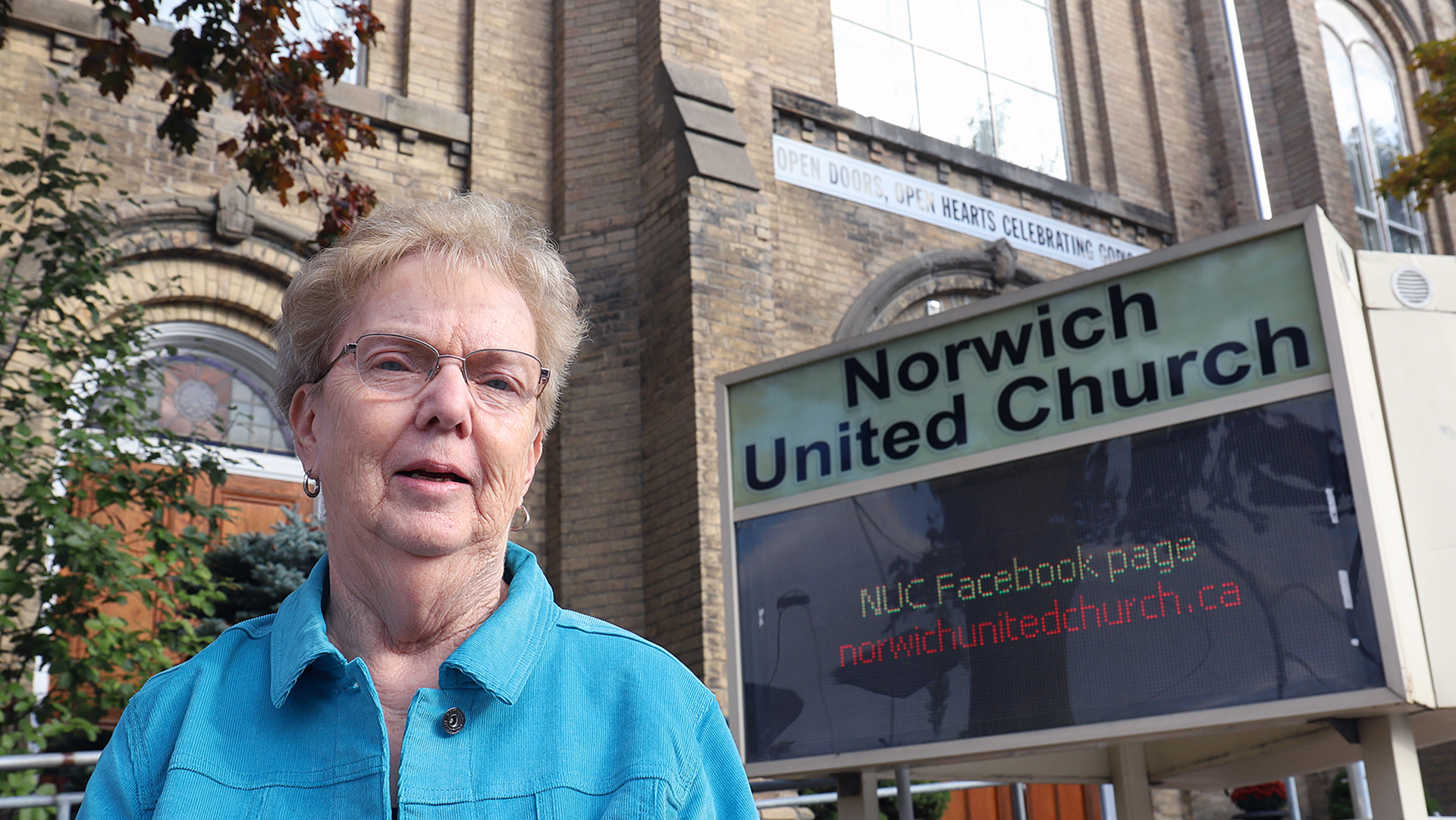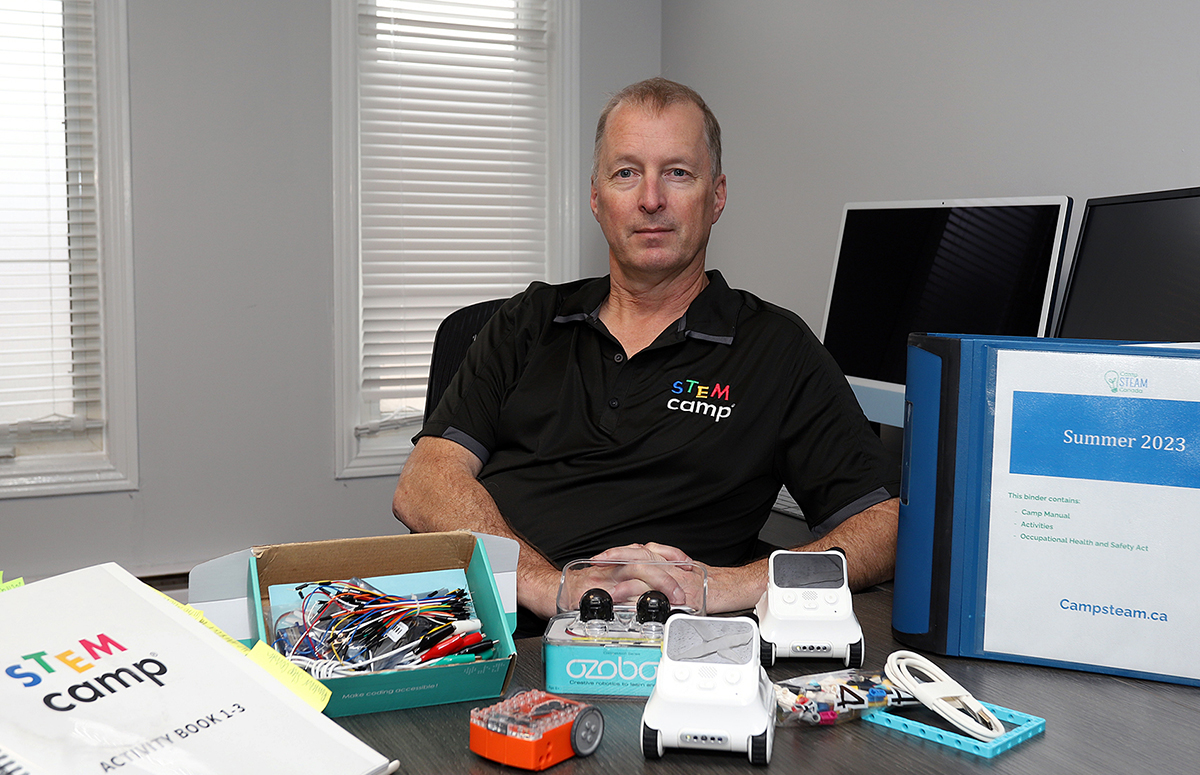Canada Summer Jobs study sparks optimism for increased funding, greater flexibility for non-profits, small businesses
Why It Matters
The Canadian Summer Jobs program has created hundreds of thousands of jobs for youth since it was launched in the 1990s. A revamp of the program has the potential to make the program easier to access and to reduce the burden of applying and reporting for non-profits and small businesses.

Canadian non-profits and small businesses say they’re hopeful a study that looked at improving the Canada Summer Jobs (CSJ) program will recommend changes to make it easier to use.
CSJ is vital to the non-profit and charitable sector, said Bernadette Johnson, director of advocacy and knowledge mobilization for Imagine Canada, an advocacy group for the industry.
“For many organizations, it’s not a nice-to-have. They rely on this every year to operate their programs.”
CSJ began with the Youth Employment Service Initiative in the 1990s under Prime Minister Jean Chretien, said Johnson. Justin Trudeau expanded his commitment when elected in 2015, doubling funding and the program’s reach from 35,000 to 70,000 jobs.
Additional funding was announced in the federal government’s pandemic-related fall 2020 economic statement, pushing that number to 120,000.
Subsequently, funding was reduced to $400 million through 2023 and 2024, returning to the 70,000 job level.
Since 2020, CSJ has created more than 300,000 full-time youth jobs of between 30 and 40 hours per week for a duration of between six and 16 consecutive weeks.
A 2022 survey of CSJ participants stated 97 per cent had developed and strengthened transferrable skills, and 89 per cent were positive about future employment prospects.
Johnson was floored by a passionate response to a 2017 Imagine Canada survey on CSJ.
The non-profit sector sees it as a bridge to source, train and develop new talent, said Johnson.
“The hope, I think, for a lot of organizations is (the CSJ) will continue.”
In the fall of 2023, the House of Commons committee launched a study on CSJ, recognizing the need for funding and flexibility upgrades.
In their submitted written brief, Imagine Canada called for a funding return to pandemic levels, reflecting contemporary difficulties in securing and retaining an effective workforce in a highly competitive labour market.
“Hiring youth is critical for the stability of organizations moving forward,” said Johnson.

She also identified the need for better clarity about application deadlines and funding criteria.
Finally, Johnson hoped to see applicants receive funding decisions earlier in the year to provide a more realistic hiring timeline.
Finding out months after application if they have been approved for several positions, which must be filled in the following week or weeks, is a primary pain point for Furniture Bank, an Etobicoke, Ont. non-profit that distributes donated furniture to those needing it.
“It also currently assumes (the students) say yes, and students magically fall out of the sky, and that’s not a reality today,” said Furniture Bank Executive Director Dan Kershaw.
“I should be finding out in February or March so I can start recruitment (for the summer),” added Furniture Bank Director of Development Tammy Peddle.

Lining up employment earlier is a risk because the organization may not end up with the funding needed to pay for the job, said Kershaw.
Kershaw said that people still need to be hired whether or not the group gets funding for the CSJ.
The 2019 and 2023 experiences of the Norwich United Church Summer Camp (NUCSC) illustrate Kershaw’s point. A community rather than a church camp, it offers affordable and inclusive experiences for elementary school-aged youth. It also provides skill and career-building employment for up to nine counsellors and senior leaders in rural Ontario, where few such opportunities exist.
NUCSC’s CSJ funding application had been successful since its 2008 inception until it was unexpectedly denied in May 2019.
“It sent us into a tailspin,” said volunteer chair Jo Ellen McKay. “It was pretty scary.”

Employment recruitment had begun in February, reflecting the expectation of ongoing funding and the timeline required in a competitive youth labour market, particularly for post-secondary senior staff members.
“You can’t wait until May to hire,” said McKay.
Like many similar institutions, the church was on the financial hook at the same time as rising expenses and diminishing membership challenged the congregation.
“We were holding our breath,” said McKay.
Thankfully, local businesses, service clubs and individuals stepped up to salvage the 2019 season. NUCSC continued on a reduced virtual level through COVID-19, receiving funding in 2022 before being denied again in 2023.
This experience is forcing the group to consider re-evaluating their viability, said McKay.
McKay would like funding acceptance or denial dates moved up by several months, prefers partial funding versus “all or nothing,” and more transparency around application criteria to ensure a more likely acceptance.
“What we did wrong, what we can do better?”
Appreciation for program
Kershaw prefaced his list of additional pain points with his appreciation for CJSJ’s program principles of subsidizing students on ramping into the workforce, including the opportunity to see what a job with meaning looks like.
He also praised Etobicoke-Lakeshore MP James Maloney’s active community engagement and transparent process in helping groups achieve funding through the program.
“He does a great job making sure that as many organizations that need help get it.”
However, Kershaw greatly preferred CSJ’s COVID-19 version, which was similar in principle, dollars, and reporting but was far more flexible regarding work.

Greater flexibility would better reflect co-op work terms, with students able to begin earlier or stay later and still participate in family vacations. Kershaw said flexibility would also improve rigid auditing requirements around weekly and hourly restrictions.
Other improvements they’d like include the ability to link employer websites to the CSJ job bank to help weed out applicants not willing to take on a job moving furniture, upping funding levels per youth to reflect wages beyond the minimum, and limiting final reporting to one submission.
Currently, the CSJ wants weekly submissions, then have all those submissions emailed again six weeks later.
Like many in smaller organizations, she has little spare time to answer the same questions, said Peddle.
“It’s not beyond (program administrators) to have … a mindset that this should not be hard for anybody engaging in the program,” said Kershaw.
Unique program
The founder of a science, technology, engineering and mathematics summer camp believes CSJ may be a unique program worldwide.
“Can we do more? Absolutely. Should we do more? For sure. But at least we’ve got something, and it’s really good.” said Kevin Congler, executive director of STEM Summer Camp.

STEM summer camp has grown from five to 54 locations in Ontario over the past few years and hopes to expand to Vancouver Island. More than 400 summer students are hired to help run camps, emphasizing the camp’s reliance on CSJ funding, said Cougler.
“Without (the CSJ) program, STEM Camp, along with a lot of the summer camps out there, wouldn’t have a program,” said Cougler. “They just wouldn’t be able to survive.”
Cougler believes because the camp is one of the largest organizations to source CSJ funding, he was called to provide information about the program at the House of Commons CSJ committee earlier this year.
His complementary view on funding announcement timing, experience with the House of Commons committee, and suggested solutions for improvement on a ‘great program’ were summarized in his presentation.
“Let’s find some ways to improve upon it if we can,” Cougler concluded.
Employment and Social Development Canada, which administers the CSJ program, is open to the parliamentary review and will follow established procedures for responding once the House of Commons tables a report, said spokesperson Samuelle Carbonneau.
Priorities reflecting Canada’s diverse population and evolving needs are established annually.
For 2024, they have been identified as youth with disabilities or organizations servicing those with disabilities; Black and other racialized, Indigenous and LGBTQ+, rural and official language minority youth; construction or skilled trades-related jobs; and environmental protection and sustainability.
